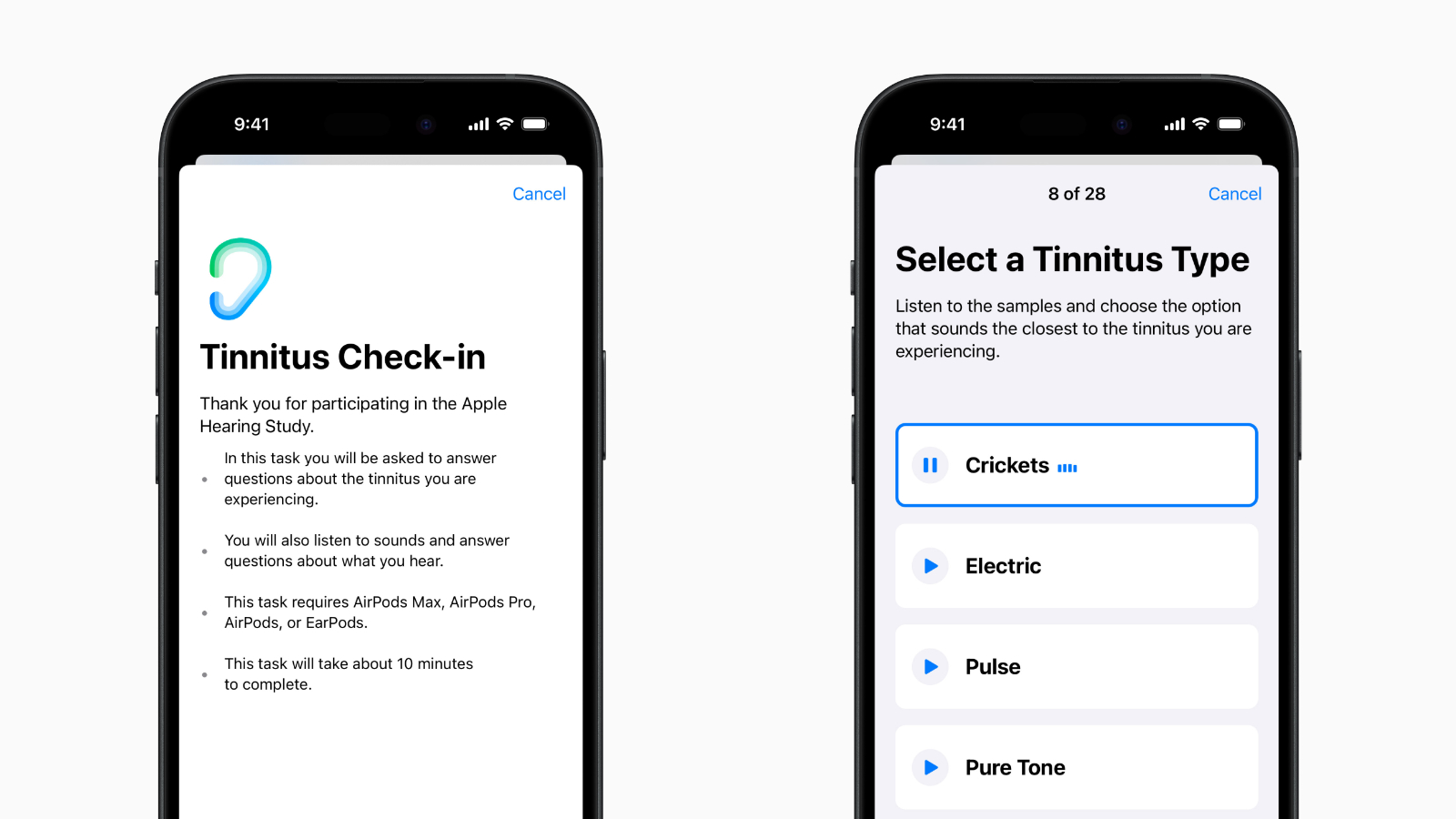
Apple today shared an update on the Apple Hearing Study that reveals new insights into the hearing condition tinnitus.

In one of the largest surveys on tinnitus to date, researchers from the University of Michigan examined data from over 160,000 participants using Apple devices. Tinnitus, defined as the perception of sound without an external source, can manifest as ringing, buzzing, or other sounds and can impact quality of life by disrupting sleep, concentration, and clear hearing.
The study found that 77.6% of participants had experienced tinnitus at some point in their lives. The prevalence of daily tinnitus increased with age, with those aged 55 and older being three times more likely to experience it daily compared to younger participants aged 18-34. Male participants reported a slightly higher incidence of daily tinnitus, at 2.7% more than females, but a higher percentage of males stated they had never experienced tinnitus.
Participants reported employing various methods to manage their tinnitus. The most common strategies included using noise machines, listening to nature sounds, and practicing meditation. Regarding the causes of tinnitus, the study highlighted that noise trauma or exposure to excessively high noise levels was the primary reported cause, cited by 20.3% of participants. Apple highlighted several ways in which its devices can help support hearing health:
- Noise app: The Noise app on the Apple Watch can notify users when environmental noise levels may impact their hearing health. The iPhone's Health app tracks a user's history of sound level exposure and indicates if headphone audio or environmental noise levels exceed World Health Organization standards.
- Environmental sound levels: Users can view environmental sound levels over the course of a week on the iPhone and check noise levels in decibels on the Apple Watch, ensuring their exposure remains within safe limits.
- Active Noise Cancellation and Loud Sound Reduction mode: Active Noise Cancellation on the AirPods Pro and AirPods Max uses built-in microphones to detect and counter external sounds with anti-noise, effectively canceling them before they reach the user's ears. For those who still wish to hear surrounding sounds, the Loud Sound Reduction mode on AirPods Pro (2nd generation) reduces loud noises while maintaining sound quality.
- Reduce loud audio: To set a headphone volume limit, users can navigate to Settings, tap "Sounds & Haptics" (on iPhone 7 and later) or "Sounds" (for earlier models), then tap "Headphone Safety" to enable "Reduce Loud Audio" and adjust the slider to the desired decibel level.
The Apple Hearing Study, conducted in collaboration with the University of Michigan, seeks to advance understanding of sound exposure and its impact on hearing health. The study has already accumulated approximately 400 million hours of calculated environmental sound levels, supplemented by lifestyle surveys, to analyze how sound exposure affects hearing, stress, and related health aspects. The data collected is also being shared with the World Health Organization as part of its Make Listening Safe initiative. See Apple's full press release for more information.
Article Link: Apple Hearing Study Reveals New Insights on Tinnitus

